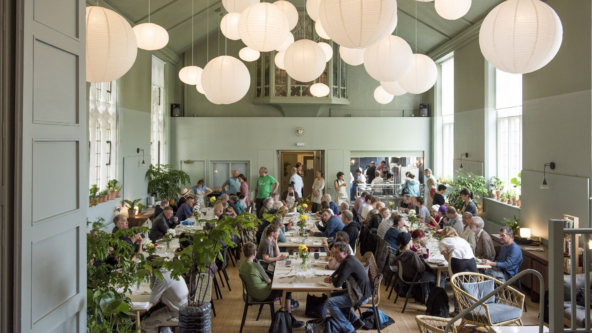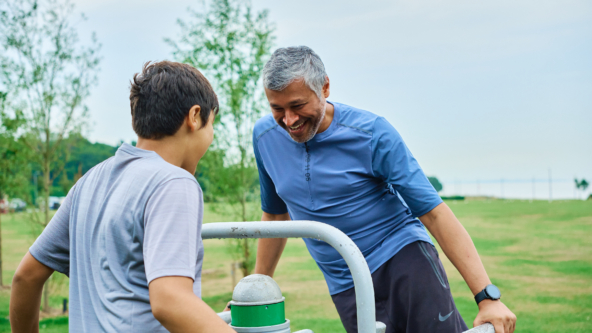Amira Mansour shares her learnings from here time spent volunteering in Brazil on behalf of Octopus Giving and The International Exchange.
Back in February, I left Octopus to take up a volunteer placement with an education company called Joy Street, based in Recife, Brazil. There’s no hiding it, I learnt a phenomenal amount in the two months I was there. I arrived home a different, and hopefully improved, person!
As much as I have nothing but positive things to say about this country that encapsulated me, there were, of course, those tough moments that left me questioning whether I could really do this… But I did, and I’m ready to share some of my learnings with you.
1. Make safety your number one priority
As a Londoner, I think I’m pretty streetwise, and this wasn’t my first time travelling alone to a South American country. Having said that, don’t underestimate that safety is key in Recife. Brazil is notorious for its high levels of crime and Recife has the highest murder rate in Brazil, so anyone looking to travel there needs to be careful.
I had three safety briefings before I left London, and when I got to Recife, I soon found out why. Most people I spoke to had been robbed on more than one occasion, (often at gunpoint), and it is something that stays with you for a long time.
One thing I got used to was walking without a bag (any kind of bag), as the safest option. Back in London, I usually walk with my phone in my hand, but after one woman shouted at me in the street, I soon learnt this was not the way things were done around here! After that, I would shove my essentials inside the clothing I was wearing and hope I’d disguised the bulge of my phone.
2. Getting around
With safety such an issue, it’s understandable that lots of people drive in Recife. But this means that navigating your way through traffic in rush hour, is not an easy task, to say the least! So, this meant I spent a lot of time in Ubers, which was the safest and cheapest way around for a solo female traveller.
These rides were insightful, to say the least! Unlike in London, Uber drivers in Brazil love to call you before they arrive. Sometimes it’s to confirm they’re coming, find out where you are, or to even provide an elaborate reason as to why they can’t make it.
Now, this could be considered courteous for some, but when you don’t speak Portuguese it can cause quite a few problems. I spent a lot of time frantically searching for innocent bystanders who could translate and mediate for me. There have been some dodgy rides, moments of sheer panic and crossed wires to name just a few of the highlights! The memories are endless, but Uber drivers saved my butt on a few occasions out here – so thank you!
3. Be mindful of toilet etiquette
I’m glad to say my experience isn’t similar to trekking through the Nepalese mountains. However, toilet paper cannot be flushed down the toilet in Brazil. I’m not sure if I’ll ever get used to the smell from the bin that’s used for this, but I apologise to the Brazilian population for all of the toilet paper I accidentally flushed away before finding out the rules.
4. Patience is a virtue
Time doesn’t really have the same weight as it does in London, and that’s a great thing. While I was there I slowed down how quickly I ate, walked and lived my life. I rarely, if ever, checked my watch.
However, as a Londoner, I still had to remind myself of this every now and then, especially when waiting in a queue at the supermarket. One customer took so long deciding what gum to pick I wasn’t sure I really understood what the problem was. I also learnt that packing your own grocery bag is not the way to do it and after the cashier laughed at me, I’d clearly made it obvious that I wasn’t from around here!
5. The people
My final life hack is to make sure you make friends. I met the most amazing people whilst volunteering in Brazil, incredible and warm people who have been helpful and open in accepting me into their world. Every day, people went out of their way to teach me something new or to help me blend in like a local. People are important in Brazil, and it’s something I feel us Londoners can forget.
Amira’s placement was arranged by The International Exchange, an organisation that believes in linking private sector companies with social initiatives across the globe.


